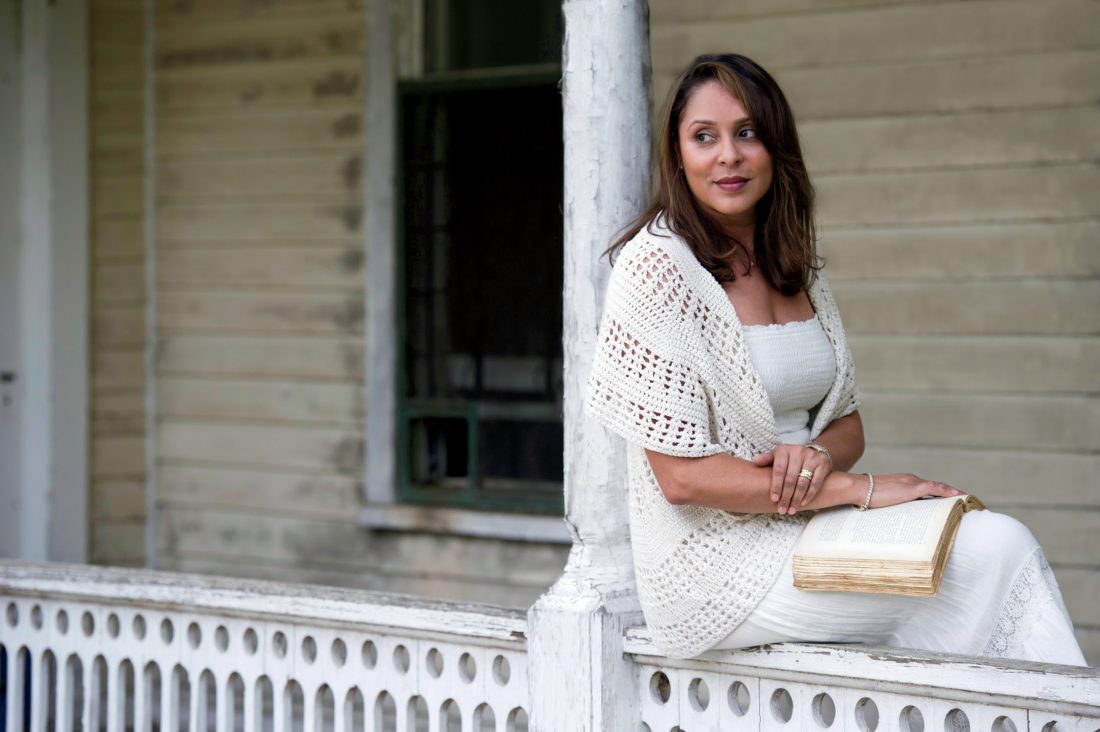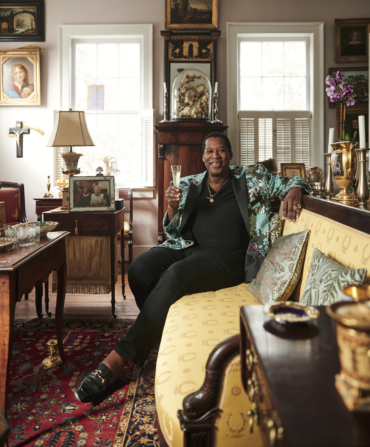Poet and Mississippi native Natasha Trethewey is a magician. She writes about the Civil War and it feels like she is writing about your grandmother. She writes about her grandmother and it feels as if she is writing about the whole of the South. In June, the Pulitzer Prize winner and professor at Emory University in Atlanta became our nineteenth poet laureate, the first Southerner to hold the post since Robert Penn Warren, the original honoree. Her poems—and soon enough, a recently commissioned memoir—quietly explore the in-betweens of life. No one is either this or that. No story the definitive telling. Nothing is as simple or straightforward as it seems, which is precisely the point. And as true a thing as has ever been said about the South.
Geography is essential in your writing. When did you first feel the pull of place?
I was always very aware of the nature of the place where I was growing up in Gulfport, Mississippi, how that place was shaping my experience of the world. I had to go to the Northeast for graduate school because I felt like I had to get far away from my South, be outside it, to understand it.
What defines the South for you?
In my head are all these images. I see places that are beautiful that I love, but underneath, that dark side. What I don’t like is anything that renders us quaint. That I don’t see.
I love the last lines of [your poem] “Pastoral”: “You don’t hate the South? they ask. You don’t hate it?” which you borrowed in part from Faulkner’s Absalom, Absalom! Do you find yourself defending the South often?
Absolutely. I get so mad when I see movies portray the South as us always sweating in courtrooms. I remember in graduate school I was a TA and one of my wicked students wrote a parody of me and he described me not wearing shoes until I was five. Now, I did run around barefoot. But the South represented as always being backwards is annoying. Look at the literature that has come out of the South.
What kind of writer would you have become if you had been born outside the South?
I have no idea. I can’t begin to imagine myself without the fate of my geography. I feel lucky to have been born into a troubled and violent history and a terrible beauty.
You call memory “our minds’ dark pantry.”
It’s so necessary to try and record the cultural memory of people. To set it down for generations to come. To better understand where we are headed. The problem is, a good portion of what we choose to remember is about willed forgetting. Which we all do, I believe, to protect ourselves from what is too difficult.

Photo: AP Photo/Atlanta Journal-Constitution, Curtis Compton
Paying Tribute
Trethewey with her father (middle) and husband (left) after a poet laureate ceremony.
So you see yourself as a bit of an unreliable narrator.
[Laughs.] Even as I think of myself as a rememberer, I also know my memory is probably doing all this work to reconstruct a narrative where I come off better. In my new book, Thrall, there is a poem, “Calling,” where I am dealing with these ideas. Why not make a fiction of the mind’s fictions? My earliest memory from childhood, I don’t know whether it is real or a conglomeration, and I have to challenge the nature of it. And explore why I’ve kept what I kept.
Well, there is only so much space.
Yes! That’s true! Some things get rehearsed. Some get revised. What part is something I know myself? And what part has been given to me? It is wise for people to acknowledge that. That what we think we know as fact is probably not. And that’s where some of the best writing comes from. You try to convince, but even as you are doing the convincing, you recognize that you are untrustworthy.
Southerners seem especially immersed in history. What do you think is the root of our collective obsession with the past?
I wonder if it has something to do with the nature of story. And who has the power to tell stories. When the South is presented in television or culture, there is always a story being told about us. And it rarely feels right. When that happens, I think people probably have a strong desire to tell the story themselves. To take control over the narrative.
Is that part of what drew you to examine the Civil War?
[Sighs.] I’ve been on a lot of panels and someone always stands up and asks, “Why do Southern writers always write the way they do?” And then someone inevitably answers, “We lost the war.” And I have to say, “Actually, my South didn’t lose the war. We won.” I’m not trying to diminish anyone else’s version of their story. I just want to tell my version.
Maybe we’d all be better off with a little less history in our hearts?
I don’t believe that. It is better if we grapple with it. Openly and honestly. And include parts that are difficult. I remember it was not until graduate school that I learned about U.S. internment camps in World War II. No one wants to recall being on the wrong side of history. When the Birmingham church bombing convictions came down, people on the radio were saying, why open these old wounds? The problem with that thinking is assuming those wounds had healed. Some bones broken will forever be weak. They will ache and cause pain. The best we can hope for is acknowledgment. What drives me crazy is when people don’t want to acknowledge!
How do poems come to you?
Once or twice I’ve had a dream where a poem is fully formed. But I spend years revising a single poem. It usually starts with a line, or maybe an image. For the longest time I would come to the last line first. I tried to fight against it. I didn’t want the poem to become a means to an end. But I’m a poet who wants to be able to say certain things. They begin with an idea I just have to convey. I hate to admit it. [Laughs.]
What’s wrong with making a point?
When I was first applying to UMass, one of the faculty told me I was too concerned with my message to write real poetry.
You should write her a poem now.
Yes! And call it “Message.”
What Southern writers inspire you?
Robert Penn Warren means a lot to me because of his dynamic relationship with his South and his place in it. I admire the transformation he undergoes. I hope I am becoming more sophisticated over time.
In the book Beyond Katrina, you quote a church sign: “Face the things that confront you.” Do you believe that is what poetry does?
It should.
Is there anything poetry can’t do?
Why is it that sometimes the best answer to a question is a line from someone else’s poem? The first thing I thought of was William Carlos Williams: “It is difficult to get the news from poems yet men die miserably every day for lack of what is found there.”
I believe what is found in poetry is enough to cover just about anything. So yeah, there is probably nothing it can’t do. It speaks for all of us. Or can. We just need to be reminded.








